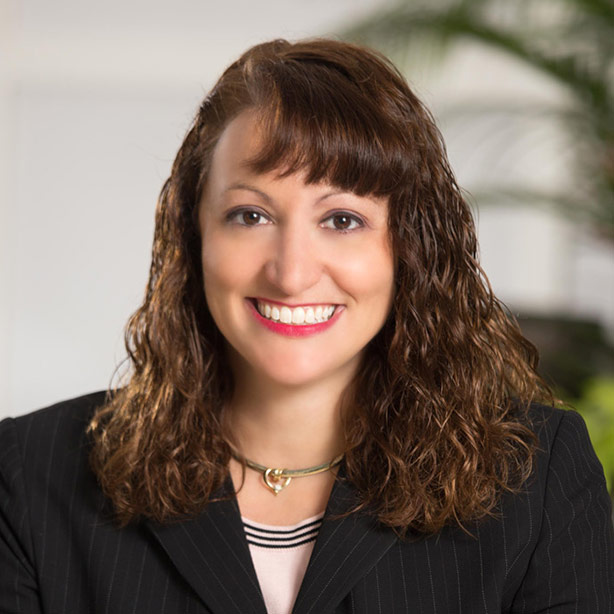OLG LEGAL COMMENTARY:
Managing Partner Jennifer Englert

As of November 2016, Florida boasted 75,000 students being homeschooled, and, according to an article published recently in the Florida Bar Journal, the number is growing.
These students are following the path of Abraham Lincoln, Thomas Edison, and Tim Tebow, to name a few. Homeschooling is not merely an educational choice, but a lifestyle which has a considerable weight attached. Numerous studies – including those found on National Home Education Research Institute — have demonstrated that homeschoolers perform as well as their traditional counterparts in categories such as standardized tests, college, and socialization, if not better.
Furthermore, homeschooling is arguably one of the best ways to create a unique educational experience, which is specifically designed to suit your child’s needs. Although homeschooling does require significant time and dedication, it is easy to understand why parents would opt for the pedagogical method.
The situation become perilous, however, when parents separate.
In the United States, approximately 40 percent of marriages end in divorce. Unfortunately, Florida is in the top 10 states for divorce, behind Alaska and Nevada. The subject of children tends to breed disagreement among separating parents, especially when it comes to education. While it might be tempting to seek educational decisions through sole custody, here in Florida, courts have a strong propensity to grant shared parental responsibility. Florida Statute §61.13 enacted in 1982 states “The court shall order that the parental responsibility for a minor child shall be shared by both parents unless it finds that shared parental responsibility would be detrimental to the child.” The language remains nearly identical today, with plenty of support from case law. This is largely due to the well-supported belief that children benefit from the involvement of both parents in their lives, even in cases of separation.
Fortunately, as of 2008, Florida’s family statutes allow for parenting plans which create timesharing scheduling that permits homeschooling, while optimizing the other parent’s time with the children. Language such as “the parents have agreed to homeschool the children” is recommended. This way, there is no ambiguity and a party cannot later claim a substantially changed circumstance. The ideal situation is to have a parenting plan which directly gives the homeschooling parent the ultimate decision-making authority regarding education. At the very least, a parenting plan should not accept or imply that the children will attend a private or public brick-and-mortar school. Once accepted, courts will be extremely reluctant to change the status quo, especially considering the parent voluntarily yielded authority in terms of education.
Mediation is highly recommended to facilitate the negotiations. The other party will likely have concerns about their ability to have a full relationship with their child. It would be wise to follow the example of a homeschooling father in Virginia [Brown v. Brown], who was praised by the court for his agreement to allow the former wife to join the occasional homeschooling class, as well as his efforts to keep her updated as to the child’s progress. Compromise will be crucial, so it’s important to give leeway on other important issues being discussed.
If litigation becomes necessary as a result of a deadlock at mediation, here are some things to keep in mind. The amount of time a child was homeschooled impacts how much weight a judge will give to the practice. Many judges will have preconceived notions about homeschooling and it will be up to you to dispel them. Expert witnesses will be invaluable to a case to demonstrate the educational and social benefits. There are even organizations which specialize in such testimony, like Homeschool Legal Defense Association. Involving children in outside extracurricular activities to develop social skills is highly recommended, so the other party cannot claim the child is being deprived of a fundamental experience provided by brick-and-mortar schools. And keep meticulous records which comply with all aspect of the state’s home education laws, or there will be little chance to continue homeschooling. When going through a separation, an attorney can be an invaluable aid, particularly when children are involved.
Jennifer Englert is the managing partner and founder of The Orlando Law Group, PL. For over 15 years, she has focused on business disputes, business law, general civil litigation, special needs & education law, family law, personal injury, and real estate. She has represented entities and individuals in both federal and state trial and appellate courts.
Founded in 2009, The Orlando Law Group, has been named one of the fastest-growing law firms in Central Florida and through America [ranked No. 105 among the top 500 fastest-growing law firms in the United States, per the 2017 Law Firm 500]. It has earned a reputation as the Orlando-area law firm that cares about its clients and the communities it serves. Offices located in Altamonte Springs, Dr. Phillips, Lake Nona, and Waterford Lakes. To contact Englert, or for more information about The Orlando Law Group, please visit www.TheOrlandoLawGroup.com or phone 407-512-4394.
Last Updated on October 17, 2023 by The Orlando Law Group







